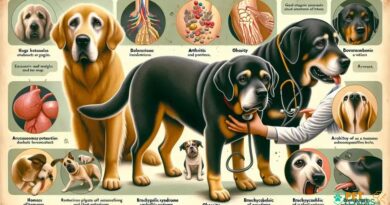What is Zoologia canina
What is Zoologia Canina?
Zoologia canina is a specialized branch of zoology that focuses on the study of dogs, their behavior, physiology, genetics, and evolution. This field encompasses various aspects of canine life, including their domestication, breeding practices, and the roles they play in human society. Understanding zoologia canina is essential for dog enthusiasts, breeders, veterinarians, and anyone interested in the complexities of canine biology.
The Importance of Canine Behavior
One of the primary areas of study within zoologia canina is canine behavior. This includes understanding how dogs communicate, their social structures, and their instincts. Behavioral studies help us comprehend why dogs exhibit certain actions, such as barking, digging, or forming packs. By analyzing these behaviors, researchers can develop better training methods and improve the human-dog relationship.
Physiology of Dogs
The physiology of dogs is another crucial aspect of zoologia canina. This includes the study of their anatomy, organ systems, and how these systems function. For instance, understanding the canine digestive system helps veterinarians provide better dietary recommendations. Additionally, knowledge of canine physiology aids in the development of medical treatments and interventions tailored specifically for dogs.
Genetics in Canine Studies
Genetics plays a vital role in zoologia canina, as it helps explain the hereditary traits and characteristics of different dog breeds. By studying canine genetics, researchers can identify genetic disorders, understand breed-specific health issues, and promote responsible breeding practices. This knowledge is essential for maintaining the health and well-being of various dog breeds.
The Evolution of Domestic Dogs
The evolution of domestic dogs from their wild ancestors is a fascinating topic within zoologia canina. Researchers explore how wolves were domesticated and transformed into the diverse breeds we see today. This evolutionary journey sheds light on the relationship between humans and dogs, highlighting the mutual benefits that have developed over thousands of years.
Canine Nutrition and Health
Nutrition is a critical component of zoologia canina, as it directly impacts a dog’s health and longevity. Understanding the nutritional needs of dogs, including the balance of proteins, fats, vitamins, and minerals, is essential for dog owners and breeders. This knowledge helps in formulating diets that promote optimal health and prevent obesity and related health issues.
Canine Breeding Practices
Breeding practices are a significant focus within zoologia canina. Ethical breeding ensures the health and well-being of both the parent dogs and their puppies. This involves understanding genetics, health screenings, and the importance of socialization. Responsible breeders contribute to the preservation of breed standards and the reduction of hereditary health problems.
Canine Welfare and Conservation
Zoologia canina also addresses issues related to canine welfare and conservation. This includes advocating for the humane treatment of dogs, addressing overpopulation through spaying and neutering, and promoting adoption from shelters. Understanding the social and environmental factors affecting dog populations is crucial for developing effective welfare policies.
Research and Future Directions
Ongoing research in zoologia canina continues to uncover new insights into canine biology and behavior. Advances in technology, such as genetic testing and behavioral analysis tools, are enhancing our understanding of dogs. Future directions in this field may include exploring the impact of environmental changes on canine health and behavior, as well as the potential for dogs to assist in various therapeutic roles.



